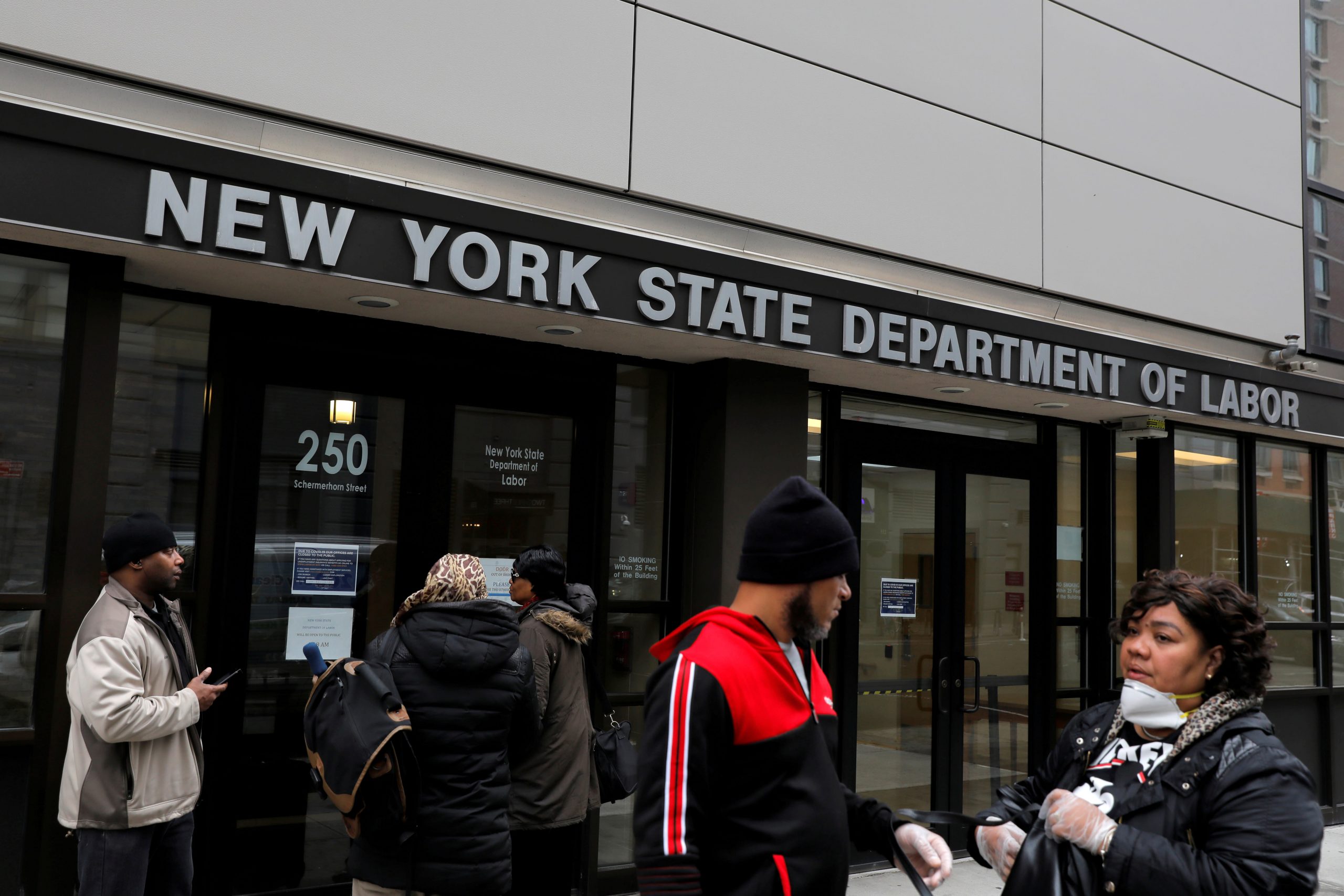Stocks gyrate and are lower after strong jobs data as investors await stimulus news

Stocks moved between gains and losses on Friday as better-than-expected jobs data partially offset lingering tensions between China and the U.S., as well as ongoing coronavirus stimulus negotiations.
At around 2:50 p.m., the Dow Jones Industrial Average traded 70 points lower, or 0.3%. The S&P 500 was down 0.4% and the Nasdaq Composite dipped 1.4%. Earlier in the session, the S&P 500 and Nasdaq traded marginally higher and the Dow was flat.
Friday’s moves put the Dow and S&P 500 on pace for their first declines in six sessions. The Nasdaq was set to snap a seven-day winning streak. It would also be the first losing session for the major averages this month.
Apple and Microsoft were the biggest contributors of losses on the Dow, sliding more than 2% each. Other tech-related names were also under pressure. Amazon dropped 2.1% and Alphabet fell 1%. Netflix, meanwhile, dipped 3.9%.
President Donald Trump on Thursday issued executive orders to address “the threat posed” by Chinese apps TikTok and WeChat. As part of the order, any transaction with ByteDance and Tencent, the parent companies of TikTok and WeChat, respectively, will be barred in 45 days.
It comes as tensions between Washington and Beijing continue to escalate over several issues including the origins of the coronavirus and democracy in Hong Kong. The U.S. on Friday sanctioned Hong Kong Chief Executive Carrie Lam.
Stimulus talks
Meanwhile, the White House struggle to agree on a new stimulus package after a $600 per week enhanced federal unemployment benefit expired at the end of July.
The Trump administration has threatened to pull out of talks and try to address jobless benefits and the eviction moratorium by executive action if the sides fail to reach an agreement by Friday. Top lawmakers told CNBC Thursday that they expect a compromise to be hatched but big differences still remain.
“In order for stocks to move higher, we do need a fiscal policy package in the $1.5 trillion range,” said Michael Arone, chief investment strategist at State Street Global Advisors. “Without that the economy is likely to retrace. This recovery will stall without one.”
Talks between negotiators ended Thursday evening without a breakthrough in sight as discussions edged closer to the Trump administration’s Friday deadline for striking an agreement. White House officials criticized Democrats as uncompromising while Democrats argued that the GOP failed to appreciate the severity of the recession.
“We’re still a considerable amount apart in terms of a compromise that could be signed into law,” White House chief of staff Mark Meadows said of the meetings.
Democratic House Speaker Nancy Pelosi noted both sides are still “far apart.”
U.S. jobs report easily tops expectations
The U.S. economy added 1.763 million jobs in July, the Labor Department said Friday. Economists polled by Dow Jones expected a gain of 1.4 million. The U.S. unemployment rate was also better than expected, falling to 10.2%. The jobs reports for June and May were also revised sharply higher.
Seema Shah, chief strategist at Principal Global Investors, said the report is a welcomed surprise for investors as “expectations of a negative jobs print had been hanging over investors for the past month.” However, Shah added Friday’s number does not “imply economic conditions are significantly improved.”
“It simply suggests the labor market was static in July, showing no signs of renewed weakness that the increase in COVID-19 cases had threatened,” she said. “Nonetheless, with Congress failing to agree on a new fiscal stimulus package yet, the risk is that a policy failure drains the tentative strength that had been creeping back into the economy in recent months.”
—CNBC’s Patti Domm contributed to this report.
Subscribe to CNBC PRO for exclusive insights and analysis, and live business day programming from around the worlds




